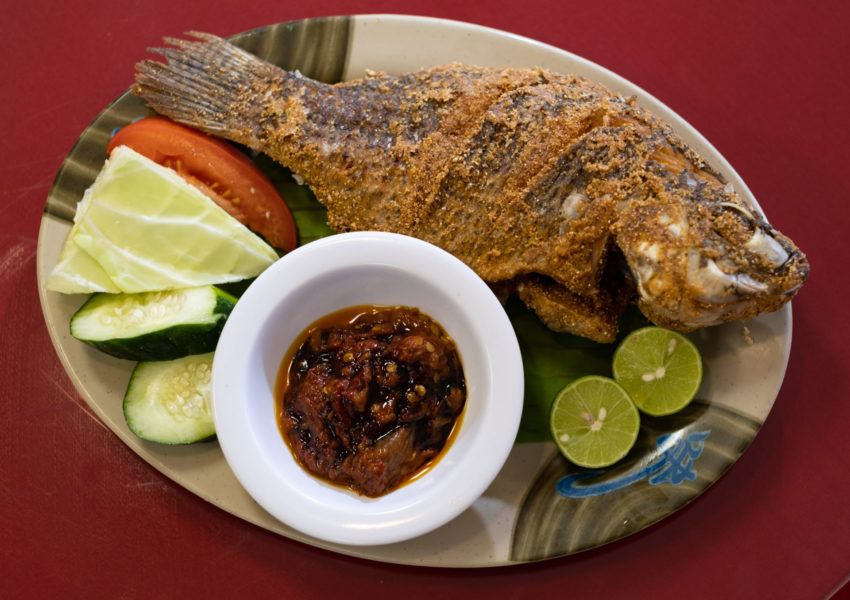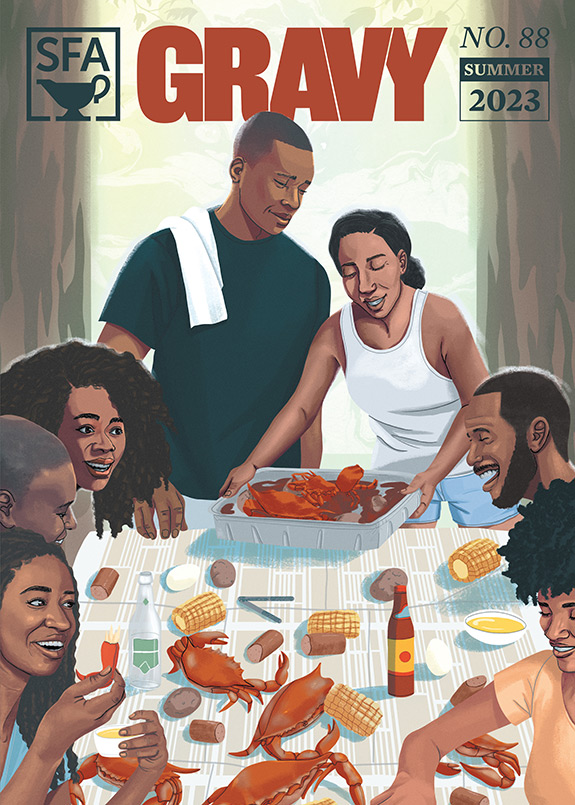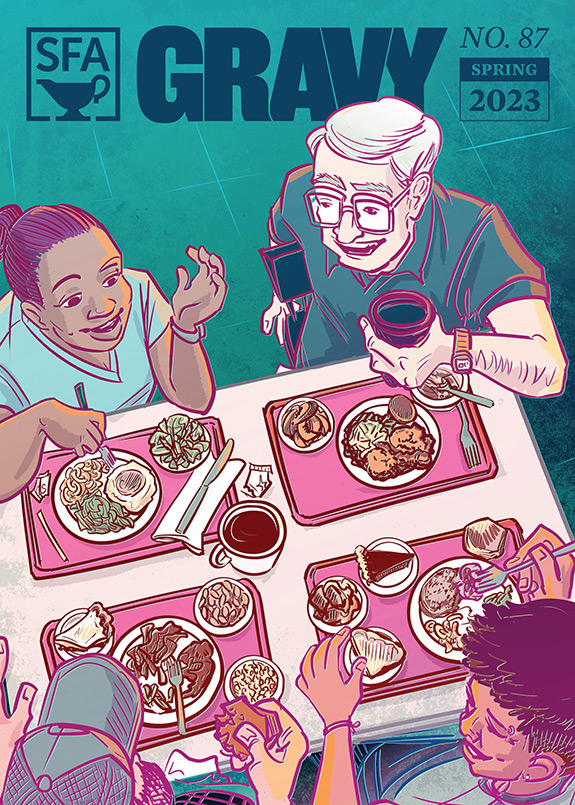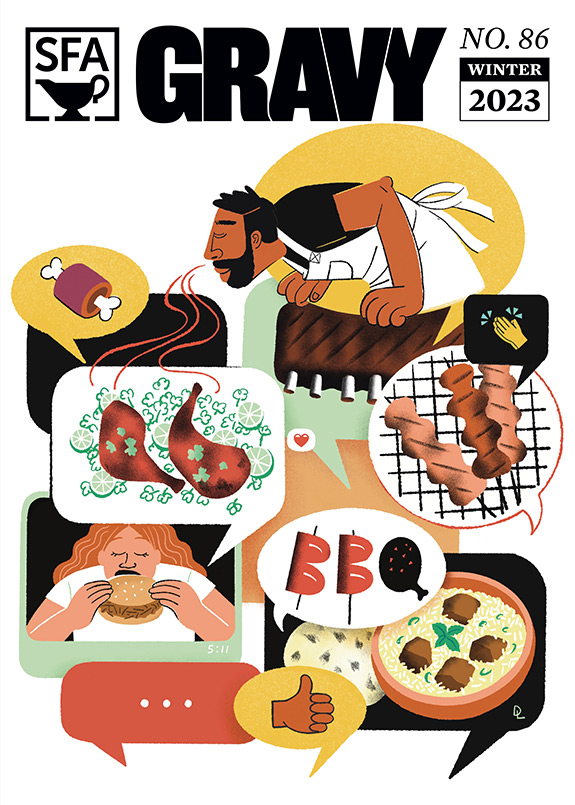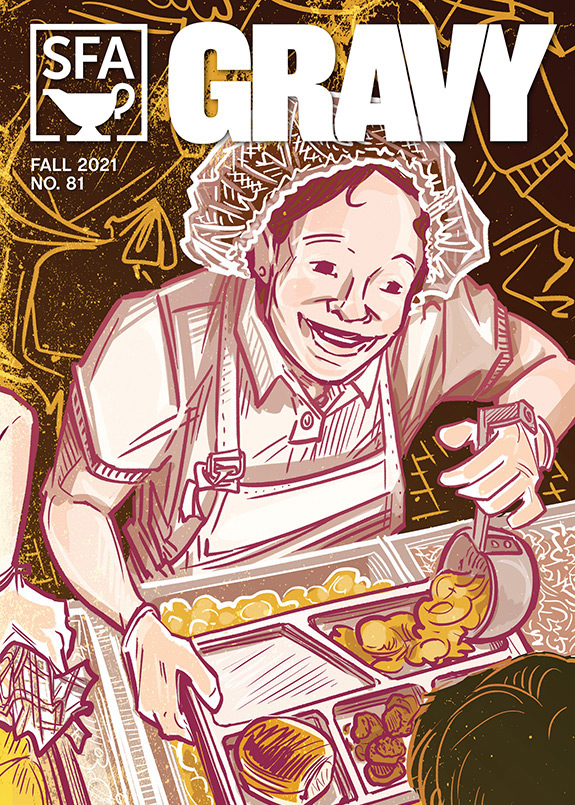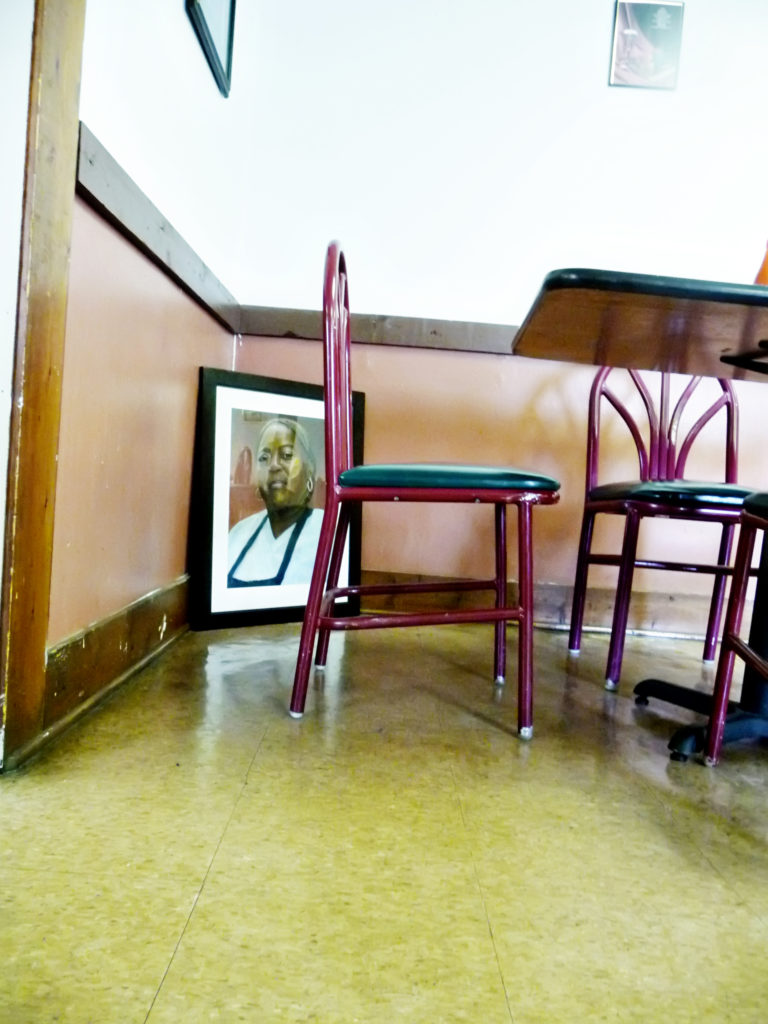
This piece first appeared in issue #52 of our Gravy quarterly. The author, Melissa Dickson, is a poet and mother of four whose work has appeared in Bitter Southerner, Cumberland River Review, and Shenandoah.
She’ll Make You Lunch
What Mother’s Kitchen Is, and Isn’t
by Melissa Dickson
Mother’s Kitchen doesn’t have wi-fi, specialty coffees, an all-you-can-eat buffet, or a dollar menu. For that matter, it doesn’t have a menu. Mother’s has a page torn from a spiral-bound notebook with the day’s four entree choices written, sometimes hastily, in pen. Fried chicken is always an option. The list of sides is familiar: black-eyed peas, macaroni and cheese, pinto beans, collards. Mother doesn’t ask if you want cornbread or rolls. She plates your lunch with a square of thin cornbread. It’s not sweet, It’s not hot out of the oven. It’s cornbread—practical, functional, understated.
Know this: Your baked chicken will be tender, you won’t be sorry you got the collard greens, and your tea will be sweet—maybe too sweet. If you don’t want it sweet, you need to ask twice. Mother is busy and she won’t hear you the first time.
Lunch will cost you $6.45 unless you get a slice of that pink cake already plated and wrapped in plastic. You’ll pay another two dollars for that. You won’t write your uncle in Atlanta about that piece of cake. Mother isn’t interested in your epicurean aspirations. She’s interested in the day-to-day, what it takes for the long haul. You might want sliced tomatoes and chopped onions with that—most folks do. She’ll ask before she forks them out of the plastic container behind the cash register.
Mother doesn’t need your love any more than she needs another article written about her tiny kitchen down an alley across from the Coweta County municipal building. She doesn’t need a sign, an ad, a p.r. flak, or a fan club. She needs regulars who want a fast lunch, a good lunch, a hot and satisfying lunch. The portions aren’t supercharged. The refills of tea will cost a quarter. You’ll get a warm hello and a pleasant goodbye, but you won’t be encouraged to linger. Mother has work to do; she assumes you do, too.
She’s been making lunch for executives, construction workers, retirees, store clerks, lawyers, craftspeople, and migrant workers in Newnan, Georgia, for 14 years. She doesn’t renovate. She doesn’t read up on restaurant trends. She doesn’t introduce new entrees or redesign the menu. And she doesn’t cook soul food. She cooks food the way her mother did, maybe the way your mother or grandmother did. If you need a label, call it country food. Soul food is the word of God, and you’ll find it carefully written at the bottom of the list of entrees, a new verse each day. Next to that open container of tomatoes and onions is an open Bible, he kind your granddaddy might have owned, with a thin black leather cover and gold-trimmed pages, thumbed over and dog-eared.
In a world where restaurateurs consider menu fonts and paint colors as carefully as the arch descriptions of appetizers, Mother’s is a holy place, a rare destination—maybe a glimpse of our recent, less-than-glamorous past. But don’t get nostalgic. Mother isn’t studying that. She doesn’t care about cultural norms, social issues, or how you think a restaurant ought to look.
This is how her restaurant looks: The floors are dirt-colored Marmoleum, the kind you remember from your elementary-school cafeteria. The countertops are aging Formica. Winter heat is provided by the open flame of a gas radiator, summer cold by a window unit. The remnants of wallpaper borders speak to the distant priority of decor. So do the favorite quotes, newspaper articles, and pictures thumbtacked to the wall. In a neglected corner an artfully rendered pastel portrait of Mother rests on the floor. A gift from the artist, it’s a fine thing, discreetly propped there, nearly hidden by a table. It’s as if Mother wants you to know that this is her place but it’s not about her. It’s about lunch. It’s about country-fried steak and gravy, black-eyed peas, lima beans, and cornbread.
Mother doesn’t care how many degrees you have, who your people are, or which side of town you call home. She doesn’t care if you publish essays, or read long novels, or know how to tango. She runs a kitchen, a good kitchen, about which people who don’t write poetry write poems.




